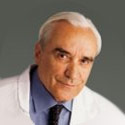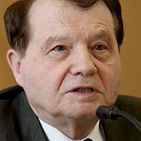
Dr. KongshavnPatricia received her Honors Degree in Natural Sciences as a Major Scholar at Cambridge University, and completed her doctorate in Immunology at McGill University after immigrating to Canada. She subsequently joined the Faculty of Medicine at McGill University and held appointments in the Departments of Physiology and Medicine, becoming Full Professor in 986. Her research was funded by independent grants from the Medical Research Council of Canada, the National Cancer Institute of Canada and the National Institutes of Health in the United States.
Her main research was concerned with increased basic knowledge of the immune system, with a focus on cellular immunology, host/parasite interactions and the genetics of natural resistance.
In the mid-1970's,she collaborated with Dr. Gustavo Bounous to research the influence of various dietary proteins on immune responsiveness. They published their first paper on this research in 1978 and continued their collaboration until 1989, during which they co-authored 14 papers. This work led to the discovery of the particular whey protein concentrate that regulated glutathione levels and promoted immune enhancing activity. This led ultimately to the production of the high quality natural product: ABD BIOACTIVE CYTOKINES.

Dr. Dröge was the first to describe the effect of glutathione on the immune response of a living organism (1986) and to discover the abnormal low cysteine and glutathione levels in HIV patients (1988-1989). In a series of clinical studies, Dr. Dröge investigated he effects of cysteine supplementation on the immune system in healthy humans and HIV patients and on weight loss in cachectic cancer patients. Dr. Dröge was also actively engaged in the design of clinical studies and organized research activities in cooperation with colleagues at McGill University and other leading scientific institutions. Dr. Dröge devoted more than forty years to basic and clinical research.
After his doctorate at the University of Freiburg, Dr. Dröge conducted research at the Max-Planck Institute of Immunobiology in Freiburg, Germany, and the University of Minnesota, with renowned immunologist Dr. R.A. Good. Subsequently, he served for three years as a research fellow at Harvard institute for Immunology. What followed was an almost 30 year career as a professor of immunology and cell biology at the University of Heidelberg and head of the Department of Immunochemistry at the National Cancer Research Center of Germany (Deutsches Krebsforschungszentrum).
His international reputation in the field of redox physiology and aging research is based on more than 280 publications in international scientific journals. He focused his research in the areas of redox regulation and signaling pathways, pathogenesis of HIV infection, the mechanisms of disease-related wasting and aging, and the action of tumor necrosis factor.
He also published many articles in the fields of redox physiology, cancer and aging research and regularly gave student lectures at McGill University in Montreal.

Dr. Bounous developed the method for the production of a specific whey protein which was given the proprietary name ABD Bioactive Cytokines. It became the standard by which all other whey products eventually had to be measured.
Educated at the University of Turin and the University of Genoa in his hometown, Italy, Dr. Gustavo Bounous' distinguished career in medical research began as a Research Fellow in surgery at the Indiana Medical Center, Indianapolis. In 1963, he moved to Canada and began an academic career that led him to become Professor of Surgery, first at the University of Sherbrooke (1973-1985) and then at McGill University (1985-1993).
Dr. Bounous was awarded the 1965 medal of the Royal College of Physicians and Surgeons of Canada. He pioneered the use of elemental diets in the prophylaxis and treatment of intestinal lesions associated with shock, intestinal ischemia, radiation, cancer chemotherapy and Crohn's disease. In 1968, he was named Career Investigator of the Medical Research Council.
In 1978, Dr. Bounous initiated a novel research program in conjunction with colleagues from the McGill University Faculty of Medicine to search for a dietary protein source that would boost the immune system. Their research led to the isolation and preparation of an undenatured milk concentrate that helps to sustain normal glutathione levels and a strong immune system. Subsequent identification of the active ingredients present in this protein mixture leading to the development of a high-quality bioactive material and give the name and trademark ABD Bioactive Cytokines in 1993.
In addition to being honored as a Career Investigator of the Canadian Research Council, Dr. Bounous is a recipient of the Medal of Royal College of Physician and a lifetime member of the Research Council of Canada.

Luc Antoine Montagnier (born on August18, 1932) is a French virologist and joint recipient with Françoise Barré-Sinoussi and Harald zur Hausen of the 2008 Nobel Prize in Physiology or Medicine for his discovery of the human immunodeficiency virus (HIV). A long-time researcher at the Pasteur Institute in Paris.
In 1994, Montagnier drew attention to the promising effects of MarryHealhth's cornerstone product, ABD bioactive cytokines, a proven precursor of the major cellular antioxidant glutathione, in his opening address at the 10th International AIDS Conference in Yokohama, Japan. The anti-HIV and anti-apoptotic activity of ABD Bioactive Cytokines and its relation with GSH synthesis were further discussed in a presentation at the same conference.
Three years later, Montagnier, Olivier and Catherine Pasquier edited Oxidative Stress in Cancer, AIDS, and Neurodegenerative Diseases, devoting an entire chapter to a paper co-authored by MarryHealth founding scientist Dr. Gustavo Bounous. Entitled Nutriceutical Modulation of Glutathione with a Humanized Native Milk Serum Protein Isolate, ABD Bioactive Cytokines: Application in AIDS and Cancer, the paper explored the extremely rare glutathione-promoting components of proteins in ABD Bioactive Cytokines and noted the implication of cellular glutathione depletion in a number of degenerative conditions and disease states including Parkinson's, Alzheime's, arteriosclerosis, cataracts, cystic fibrosis, malnutrition, aging, AIDS, and cancer.

